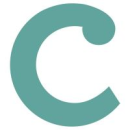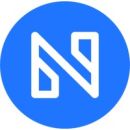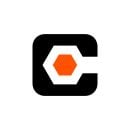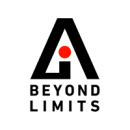Let’s start with the numbers.
According to a 2018 report from the National Center for Women and Information Technology, around 57 percent of the U.S. workforce is female, but only 26 percent of the country’s computing jobs are held by women. In 2016, women represented 57 percent of bachelor’s degree recipients, but only 19 percent of computer science degree holders were female — a statistic that doesn’t seem so bad until you consider that this number was much, much higher in 1985. Back then — more than three decades ago — it hovered at around 37 percent.
Numbers are extremely important, but they don’t tell the full story. Having reported on LA tech since 2014, we know that the female technical community in this city is a strong and outspoken one. We’ve written countless stories about female engineers who have broken down barriers, changed cultures and built cutting-edge products — and who’ve lifted the rest of the community with them as they did, every step of the way.
This month, we were lucky enough to sit down with seven extremely talented women of the LA computing community. Together we discussed work, gender, technology, the quest for perfection, and how all of these are woven into the fabric of the computer science profession. Here are their stories.
Romeo Power is a battery company specializing in lighter, long-lasting car batteries that work without aid from gas or other carbon emission-creating fuel sources. The company also designs energy storage systems that help businesses and storage systems save money while harnessing wind and solar. We caught up with Chithra Annegowda, a firmware engineering manager at Romeo Power, about her path to becoming a software engineer.
Tell us a little bit about how you got into engineering.
When I was in high school, I’d spend summer holidays at my older cousin’s place. She was taking computer science in college and so she’d bought a computer. It was the first in our family and I was hooked. I’m raising my own daughter now, and I know how important it is to expose young girls to STEM. I’ll always thank my own mom and dad for that. I’m doing what I was meant to do, and I love it.
Succeeding as a mom with a demanding job — and what’s more demanding than being a mom? — made me feel like I could do anything.”
What is the biggest challenge you’ve faced in your career, and how have you worked to overcome it?
For many women, our career clocks compete with our biological ones. At several points in my career, I had to take a step back: when I got married, relocated, had kids, etc.
But then I always doubled down on my commitment and determination to get back on my career track without losing sight of my goals. It wasn’t easy, but I wanted to have it all — professional success and personal fulfillment. Of course, I was incredibly lucky to have a supportive family and workplace to help make that all possible.
Succeeding as a mom with a demanding job — and what’s more demanding than being a mom? — made me feel like I could do anything. Now whenever I feel myself becoming complacent and coasting along in a comfort zone, I look for a new challenge!
Any advice or tips for other women pursuing a career in engineering?
Facebook COO Sheryl Sandberg’s advice has really helped guide me: “Don’t leave before you leave.” She saw that young women would often bail on their careers too soon. It’s OK to take a step back when you have to, but you should never stop short of your potential if you can help it.
Try to step out of your comfort zone and take on more responsibility. You can’t strive for new horizons until you lose sight of shore. Do your best work, advocate for yourself, and go for those promotions. Be the leader and role model you know you can be.

Clutter is an on-demand storage and moving company that’s built an end-to-end platform harnessing logistics and supply chain technologies. The company creates a digital record of all the items it holds for customers, allowing users to request their stuff back one item at a time. Supriya Vadlamani, a senior software engineer and team lead at Clutter, sat down with Built In LA to discuss her career in tech.
Tell us a little bit about how you got into engineering.
I come from a family of engineers, so I was lucky to gain exposure to math, science and computing from an early age. While I have a lot of interests, computer science has been a core intellectual passion of mine since my high school days.
The big takeaway for me was to create my own intellectual and professional network rather than rely on an existing structure.”
What is the biggest challenge you’ve faced in your career, and how have you worked to overcome it?
I was very fortunate to join Microsoft as a software engineer as my first job. The support system and mentorship network at Microsoft were amazing resources — I benefited a great deal from the career advice, and the process introduced me to various role models whose career paths in tech were an inspiration to me. When I left Microsoft and moved to a new city for personal reasons, there was a multi-year period where I lacked a suitable support network I could rely on for career advice and mentorship.
Finding my way around the tech scene in a new city was initially a big challenge. I attended meetups, conferences and events sponsored by various companies to connect with others and learn about exciting work in the area. The big takeaway for me was to create my own intellectual and professional network rather than rely on an existing structure.
Any advice or tips for other women pursuing a career in engineering?
I’d advise every woman —and more broadly, every person — to actively engage with the broader tech community in their city rather than simply those within their company. This may seem daunting at first and a challenging time investment, but it will pay dividends over time. One resource I found very helpful for this is an article about Sophia Velastegui, the general manager of Microsoft's Artificial Intelligence product org, titled “This engineer created a fool-proof plan to overcome shyness.”
If you’re not already in tech, this is a great time to get into the industry. If you’re in college, consider majoring in computer science or another STEM field as the opportunities upon graduation are limitless.

Tinder empowers users around the world to create new connections using technology. The company has made more than 10 billion matches to date and employs a team of roughly 250 in Los Angeles. We caught up with Tinder’s Sophia French, an Android engineer at the company. Here’s what French told us about her path to becoming a software engineer.
Tell us a little bit about how you got into engineering.
TL;DR I’m not a prodigy. But I am pragmatic.
Software engineering as a career was not something I ever considered when I was growing up. It wasn’t promoted in school, nobody had smartphones, and I didn’t know anyone in tech. It wasn’t until college that I was introduced to computer science. Tech was becoming increasingly prevalent, and I was required to take programming classes as part of my structural engineering program.
Those introductory computer science classes gave me the ability to build things right in front of my computer. It was the most fun I’d had in college up to that point, and like any college student who discovers a class they genuinely enjoy, I considered changing majors.
I made a conscious decision to pursue the career that was more likely to give me the things that have always been important to me: flexibility with my time, options with where I could live, the ability to work remotely and no hard income ceiling.
Make yourself valuable...the most pervasive myth in this industry is that the work is different if you are a woman... It’s not true.”
What is the biggest challenge you’ve faced in your career, and how have you worked to overcome it?
The biggest challenge I’ve faced, and continue to face, is myself. For every failure, every missed deadline, every bug, every crash, every time I didn’t get my way, I can point to something I did wrong. I didn’t do enough planning to give a good estimate. I wrote sloppy code. I forgot to test that one unlikely edge case. I didn’t speak up and ask for what I wanted.
The nature of building brand new products with cutting-edge designers is that everything is new. I’m constantly learning, I’m always trying something different, and I rarely get to reuse that piece of software I poured my heart into last year for the new hot thing. I do, however, get to learn from my mistakes and try not to make them again so that the next thing I build is not only more pleasant to build but bigger and better than the last.
Any advice or tips for other women pursuing a career in engineering?
First, make yourself valuable. It’s very simple advice, but the most pervasive myth in this industry is that the work is different if you are a woman, and that you have to overcome some great invisible sexist hurdle before becoming a woman in engineering. It’s not true. You can just pursue it and become valuable right away. Our work is measurable. We can point to the things we built and their successes as explicit arguments for our value; and, if you’re valuable, the demand for you and your work will be high.
Secondly, ask for the things that you want. Ask for the good projects. Ask for the learning opportunities. Ask for the best mentors. The point of making yourself valuable is that you’re putting yourself in a better position to get the things you want, but nobody is obliged to give you anything if they don’t even know you want it. Make use of your voice and value.
Nativo is an adtech company that specializes in native content distribution. The company — one of a handful of SoCal tech companies to come out of CIE Digital Labs, a startup accelerator — helps major companies like Amazon, UPS and IBM drive more significant engagement with native ads while tracking ad performance and automating operations. Nativo Senior Big Data Engineer Ying Shang joined us to discuss her career as a computer scientist and her advice for fellow females in the field.
Tell us a little bit about how you got into engineering.
When I was young, I would play computer games on my uncle’s desktop, which ran on a DOS system. I thought the game was pretty cool — and that’s how I started chasing technology. As time passes, I feel lucky to have had a chance to become a software engineer. I say lucky because I’m doing a job where my passion lies. Tech is helping the world to become better and better, which I appreciate a lot.
I feel ladies can perform as well as or better than gentlemen in engineering (no pressure, guys).”
What is the biggest challenge you’ve faced in your career, and how have you worked to overcome it?
The biggest challenge for me might be to love people better than my computer! I’m still thinking about ways to overcome that. Any suggestions welcome...
Any advice or tips for other women pursuing a career in engineering?
I feel ladies can perform as well as or better than gentlemen in engineering (no pressure, guys). We have so many opportunities to learn and such easy access to any kind of new tech nowadays. I’d say, anyone who truly devotes him or herself to engineering will likely be successful.

Procore Technologies develops cloud-based technologies for the construction industry. Their clients, which include firms responsible for building skyscrapers, hospitals and retail centers around the globe, come to the company for tools to help manage the building process online. Katarina Rossi, a software engineer at Procore, sat down with Built In LA to discuss her career building the technology behind the company’s platform.
Tell us a little bit about how you got into engineering.
I’ve always had an interest in programming and began teaching myself when I was 13 years old. I played around with JavaScript and basic web-related coding for years, but it was after my brother — who is also a self-taught programmer — introduced me to Lisp through “The Little Schemer” books that I really got hooked.
I found out that computer science was a subject I could major in my senior year of college — and with two majors and three minors already declared, it was a little too late! After I graduated, I began taking computer science courses through edX, an online course provider. I enjoyed what I was learning so much that I knew programming was what I wanted to pursue professionally.
Just because something is hard does not mean you’re bad at it.”
What is the biggest challenge you’ve faced in your career, and how have you worked to overcome it?
My biggest career challenge was breaking into the industry. After a few years of teaching myself to code and attending a coding bootcamp, I spent three months looking for a job and ended up applying to 273 positions. It was difficult to convince a company to look past the fact that I didn’t have a computer science degree and instead look at my capabilities as a software engineer. I pushed through constant rejection while still trying to build projects and improve my skills. It was all worth it in the end, as I eventually found a great position as a software engineer at Procore where my passion, drive, skill and training are valued.
Any advice or tips for other women pursuing a career in engineering?
Just because something is hard does not mean you’re bad at it. I didn’t know computer science was an option because I had written off engineering school entirely thinking I was bad at physics.
Finding something challenging should never steer you away if the subject makes you come alive. Don’t hold yourself back just because something isn’t easy. Continue investing in yourself and your learning, and look for career opportunities at companies that encourage you to do that.

Taboola uses machine learning to help consumers discover new content and get companies in front of the customers they most want. The company reaches over one billion readers on sites including OAL, MSN, NBC and the The Weather Channel, among thousands of others. We caught up with Tracy Tan, an R&D team lead on Taboola’s engineering team, to learn how she found her way into a successful career as a software engineer and team leader — and how other women can do the same.
Tell us a little bit about how you got into engineering.
I grew up in a small farming town in Malaysia with limited access to new technology. Luckily, my eldest brother had the opportunity to come to the United States to study computer science, and once he got a job here, he sponsored me for my master’s degree in computer science in the United States. I got a programmer job after I finished my degree in the San Francisco Bay Area and met my husband, who is also an engineer.
I was very lucky that I was surrounded by people who supported my interest in computer science. In 2006, I moved to Los Angeles and worked for Ning Ning Yu (VP R&D at Taboola). She is my role model and I have worked for her at various companies since.
I have been lucky to have mentors and supporters to guide me through these difficult transitions and encourage me to be a better and smarter version of myself.”
What is the biggest challenge you’ve faced in your career, and how have you worked to overcome it?
I started my tech career as a web developer and data warehouse engineer at a university. Since then, I have transitioned through many different roles and each time it was challenging. I took on all these new responsibilities without any official training and had to learn on the fly. I have been lucky to have mentors and supporters to guide me through these difficult transitions and encourage me to be a better and smarter version of myself.
Any advice or tips for other women pursuing a career in engineering?
It can be overwhelming to be the only woman among a vast number of male engineers, but don’t be discouraged. If you are passionate about engineering, you need to believe in yourself. Being an engineer is not for everybody, so being passionate about the subject is crucial if you want to succeed.

Beyond Limits is a full-stack AI company with close links to NASA and Caltech. The company leverages literal rocket science to provide businesses and industrial operations solutions that can detect anomalies, assess hypotheticals and discover associations between information sources. Shreya Wagle of the Beyond Limits engineering team joined us to discuss her career.
Tell us a little bit about how you got into engineering.
My interest in computer engineering can be traced back to the eighth grade when I barely knew what an engineering degree was. It might sound cliche, but the true reason I ended up in this career is because I found it so amusing that programming enables humans to command a non-living object, such as a computer.
[Don’t] look at your job as a monotonous daily routine... A real engineering solution is much larger than that.”
What is the biggest challenge you’ve faced in your career, and how have you worked to overcome it?
It has been about nine months since I completed my master’s degree and started working full time. I am not sure if I can call it my biggest challenge, but one of the stark differences that I noticed between student life and work life is keeping up with the growth curve. It is of utmost importance to continue learning throughout your career to prevent stagnating.
There is a high tendency for engineers to stop learning while doing a job since they are no longer obligated to study for grades. However, it is in the benefit of engineers to make small contributions to their education that will pay off in the long run. This is not only true for learning something new but also for improvising and optimizing something that is already built.
Any advice or tips for other women pursuing a career in engineering?
Enjoy what you are doing. Be it inventing new diagnostic medical scanners or building a bridge to connect different cities, the real spark lies in having a positive attitude and being willing to experiment something new. A tip to my fellow female computer engineers would be not to look at your job as a monotonous daily routine, which might include coding, debugging or testing. A real engineering solution is much larger than that. It comprises understanding a solution from inception to culmination.
Another tip is to never stop learning. Every failure is a stepping stone to success and, indeed, a great way to learn. Failure should not be seen as a roadblock, but as a valuable input for making wise decisions in the future.











